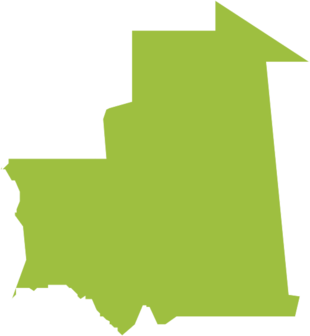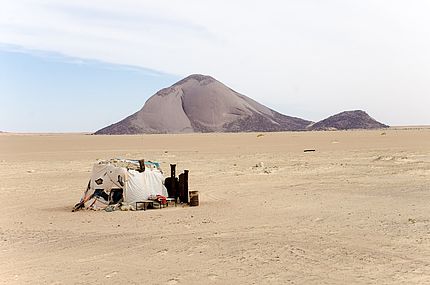AFRICA
Mauritania

Area: 1,030,700 km²
Geography: Mauritania has a dry, hot, and windy climate. Its terrain is mostly barren, flat plains of the Sahara with some central hills. 38.5 percent of land is under agricultural use, while 38.1 percent are used for permanent pasture. The agricultural sector accounts for 27.8 percent of the country's gross domestic product. Half the population still depends on farming and raising livestock. (CIA, 2022)
Land Degradation: Mauritania’s major land-related challenges are desertification and a high vulnerability to climate change and extreme weather conditions, notably recurrent droughts, and flooding. Years of severe droughts correspond to periods of economic shrinkage. Citizens are devastated by droughts. (Landportal, 2021; UNCCD, 2020)
Sustainable Land Management: In 2002, Mauritania has established its national voluntary Land Degradation Neutrality (LDN) targets with the ambition to achieve LDN by 2030. In 2019, Mauritania hosted a conference on the Opportunities and Challenges of the Environment and Sustainable Development bringing together a wide spectrum of different stakeholders. UNCCD Executive Secretary Ibrahim Thiaw spoke on green jobs - for example in restoration of degraded environments - and agro-pastoralism, that would turn the challenges into opportunities. Mauritania is also one of the eleven Great Green Wall countries - an initiative aiming to restore degraded lanscapes across the African continent. (UNCCD, 2019, 2020, 2022)

ELD ACTIVITIES
-
Case Study (2023)
Title: Showing co-benefits of terrestrial natural capital restoration in Mauretania
Content: An economic assessment of the costs and benefits of different land management options is conducted to demonstrate how maintaining as well as enhancing terrestrial natural capital and social/human capital can go hand in hand and contribute to several SDGs. In the end, the aim ist to provide Mauritanian partners with an evidence-based foundation for policy-relevant planning and decision-making processes at local, regional and national level. The study is implemented under GGKP, together with the GIZ Projects CoRMCT (Co-Gestion des Ressources Marines et Cotieres), CoRNT (Co-Gestion des Ressources Naturelles Terrestres) and local partners.Report and accompanying material: Forthcoming
CONTACT
ELD Secretariat
E-Mail: info@eld-initiative.org
